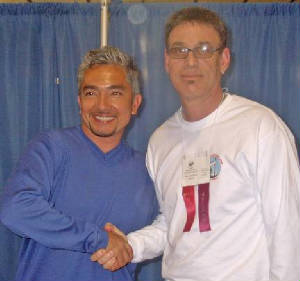Dogs are social animals. Except in rare circumstances, aggression in dogs is not something that materializes overnight. Behaviors of growling, snapping, and defensive barking are developed over time, often inadvertently reinforced by a dog’s owner or his experiences.
The best way to handle aggressive behavior is to catch it early on and take steps to correct it. But this isn’t always possible. If you’ve welcomed a rescue dog into your home, or missed some signs with your puppy, aggressive behavior can cause a significant and even risky problem. Identifying why your dog is acting this way can help you decide what steps are needed to correct the behavior.
Causes of Aggression in Dogs
Aggression is almost always a learned behavior. No breed acts aggressively from birth, and although some breeds were bred for some forms of aggression (eg, hunting), the initial behaviors when the dog is younger can be prevented before they become aggressive.
So when a dog does show signs of aggression, it often means something was amiss in their upbringing. It can come from training, a past trauma, insufficient experiences, or, in some cases, a health condition. A suspected health concern should prompt an immediate visit to your vet. But if you’ve been able to rule that our and your dog is still biting or growling, start by determining which type of aggression she’s displaying:
- Possessive Aggression - Also referred to as resource guarding, this is when your dog protects food, toys, their bed, furniture, your yard, or other objects (or people) she feels are hers.
- Social Aggression - Often resulting from insufficient socialization as a puppy, your dog will direct their aggression towards people, dogs, and other animals, but not those in their family.
- Frustration Aggression - This aggression is usually caused by frustration when your dog is stimulated but unable to obtain it, often due to being leashed.
- Fear (Defensive) Aggression - Like any animal, when a dog feels threatened, she will often choose to defend herself. Fear aggression often comes from frightening experiences in the dog’s past.
- Pain Aggression - This type of aggression, as well as others caused by health issues, may have a sudden onset and should be handled by a veterinarian.
Other types of aggression include territorial aggression (similar to possessive except over a piece of property they believe is theirs), predatory aggression (dogs whose instinct is trying to hunt), protective aggression (trying to protect family) and sex aggression (battling with other dogs in an attempt to mate).
To correct aggressive behavior, you have to address the underlying cause, not only the biting and snapping that forms the immediate problem. This can mean gradually entering situations where your dog is likely to become fearful or over-excited and positively reinforcing calmness. You might need to limit your pet’s access to toys or furniture until he understands that he does not have ownership of the object.
It's also important to gain more understanding of dog behavior and training. For example, when a dog is scared, it often shows teeth to another dog as a warning sign that if the dog doesn’t leave it alone, it may attack. Some dog owners see this as too aggressive, and try to punish their dog. But if the dog is scared and feels they cannot show teeth, they may feel even more frightened and skip directly to attacking, causing even further problems. This is why learning about dog behavior is such an important part of being a dog owner.
Getting Your Dog the Help it Needs
Because the results of unchecked aggression can be devastating if your dog manages to bite a person or another animal, working with a professional Chicago dog trainer is often the right choice for dogs showing aggressive tendencies. A trainer can help identify the cause of aggression and put you and your four-legged friend on the path to communicating with without harmful behaviors. At Chicago Dog Trainer, we also have boarding school programs designed to reduce aggression and show your dog a healthier path forward. Contact us today to learn more.





